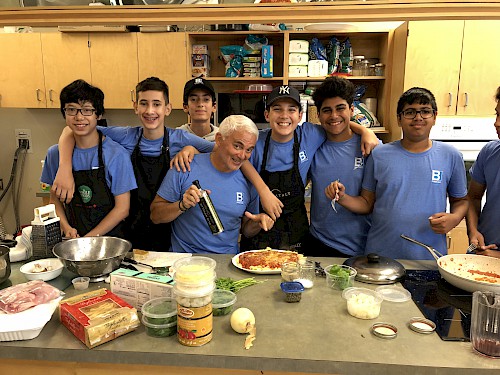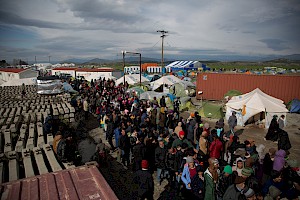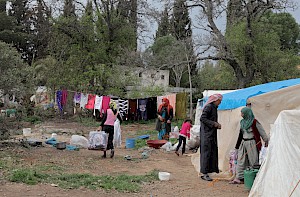Let's Hear it for the Boys
March 20, 2019Back in the late ‘90s, I was introduced to a high school drama teacher who was doing great work encouraging young men to write their own stories for film and television. His high school was in one of Vancouver’s poorest neighbourhoods, where teenage boys were particularly vulnerable to gangs and drugs, and many of them had few if any good male role models. But Jimmy Crescenzo’s program gave these kids a voice – a platform from which to tell their stories, to talk about hurting, or feeling alone. It was a simple and powerful way for young people to connect with their emotions.
At the time, however, the benefits of the program were available only to those who signed up. After a few years of success with the film and TV program, Jimmy and I talked about wanting to find a way to reach the boys who were falling through the cracks. We wanted to provide them with an environment where they felt safe. We wanted to provide them with connection – not just to the good men working in the school system, but to the good men working in the community.

The school’s vice principal, Walter Mustapich, got on board and we started to talk about how many boys were dropping out and how many were being lost to gang life. They asked the school’s counsellors to identify some vulnerable male students who might benefit from an informal club where they could get a few slices of pizza and a sympathetic ear. The counsellors came back with 90 names. Once we got over our initial shock, we asked them to whittle it down to 15 and they told us: “Don’t worry. By Christmas, it’ll be down to six or seven because so many will have dropped out or been kicked out.” But once the boys were in, they never left. The model – including the promise that whatever is said in the room, stays in the room – was a success.
The Boys Club at Templeton Secondary School was started more than 12 years ago. Walter and Jimmy have both retired from the school system, but they continue to work tirelessly to prevent as many young men as they can from dropping out, joining gangs, and going down the wrong path. Today, Jimmy focuses on East Vancouver with his own East End Boys Club, while Walter is expanding the reach of the Boys Club Network to the rest of the province, operating in 21 schools across 12 districts in British Columbia. Jimmy and Walter both have hearts of gold. They truly care about the kids, and it shows in their astonishing results.

Of all my philanthropic endeavours, I get the most joy from this one. What I am giving goes beyond financial support. It’s the mentoring and connection that the young men truly appreciate. It’s the simple words of encouragement and the life lessons from someone they can look up to. It's about hope. I always tell these kids: “If you believe that you can do something strongly enough, you will do it. But you have to believe in yourself first.”

There was one young man who came to me about 15 years ago – when I was still very involved in the film world – who wanted to ask me about acting. We chatted, kept in touch, and he went on to find work as an actor. He is now a single dad and youth leader who works incredibly hard and has made all the right choices in life. It makes me immensely proud to think I may have played some role in his success, and the success of so many others who have gone through the program.
There are other young men who finished the high school program, went on to receive a post-secondary education, and came back to be mentors themselves. And while the program has deep, blue-collar roots in East Vancouver, it has spread to some of the wealthiest neighbourhoods in the province, the reality being that all young men need good male role models, regardless of their family’s wealth or status.
It has been a true privilege getting to know some of these young men, hearing their stories, sharing my own story, and watching as they’ve grown into good men. This work has also given me a better appreciation of what it means to be a good father to my kids. And for that, I am truly thankful.
**************
Some facts about today’s young men:
• Boys are five times more likely than girls to drop out of school.
• Boys are four times more likely than girls to commit suicide.
• Boys are 18 times more likely than girls to be victims of major crime.
• Boys in B.C. public schools have few positive male mentors or role models, with just 10 per cent of new teachers being male, and 25 per cent of the aging-out teacher population being male.
• Disconnected boys, as a rule, seek advice and direction from friends, social media, and celebrity influences. They do not search online for help or resources.
(Source: Boys Club Network)










